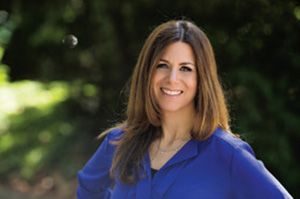
What does it mean to be human? Of all the driving questions schools might ask students to grapple with, this is perhaps the most overarching and most important. And it is at the root, both etymologically and practically, of the study of the Humanities at The Idea School.
The first unit of study centered around the habits of ancient agrarian civilizations. Those habits created the building blocks of our modern societies. Those habits—storage of surplus food, central authority, state religion, occupational specialization, trade, written language, standing armies, social hierarchy, monumental public architecture and gender inequality—are easily recognizable to students in modern institutions as well as in the civilization we are commanded to create in sefer Bamidbar. As students studied ancient Mesopotamia and other ancient river valley civilizations, they made connections in the beit midrash to the similarities and differences they found in the way Bnei Yisrael were commanded to set up their camp and ultimately their society once they reached the land of Israel. What emerges from this are the elements that link all human beings together, and also might make us ask how much progress we have actually made in refining and improving our institutions.
In exploring the theme of law and justice, students looked at how Greece and Rome made civilization much more complex by creating laws, inventing concepts like democracy and citizenship, and posing philosophical questions about existence. It was the Greek philosopher Protagoras who in essence created the humanities by asserting that “Man is the measure of all things.” The Greek play “Antigone” proposes the driving question for the unit: What happens when one’s personal moral responsibility conflicts with one’s responsibility as a citizen?” Through the Socratic seminar process, students will explore the play, discuss the issues it raises and as their final project, put Antigone on trial for defying the law of Thebes to bury her traitorous brother. Concurrently, in the beit midrash as part of their Talmud study, they will explore how this question arises in Jewish law. The Talmud, too, reveals how the oral law took our ancient Temple-based religion and made it much more complex and reflective of the range of human experience with the laws of the Torah.
Idea School humanities students will also connect to human experience through their independent reading. Once per trimester, students will read a book of their choice thematically connected to their unit of study. Students chose a biography or autobiography, noting the habits of (mostly) famous people who had distinguished themselves in some way and thinking about their own habits. For their law and justice unit, they are reading a book that poses the same question as Antigone—how do characters in “The Book Thief,” “The Hate U Give,” “Monster,” “The Help” and “All the Light We Cannot See,” among others, respond to the challenge of injustice in their “civilized” societies?
By asking questions about human experience—where our habits came from and how we might refine them, whether personal or societal; how we might respond to injustice—we are better able to honor Hillel’s directive in Pirkei Avot to “love all creatures.” We are better able to use our scientific knowledge to create things that will improve human experience and to ask the ethical questions that might prevent us from using our inventions to harm others. Integrating the study of the humanities helps students make the connections that will make them be more thoughtful members of the Jewish people as well as of the human race.
By Nancy Edelman










